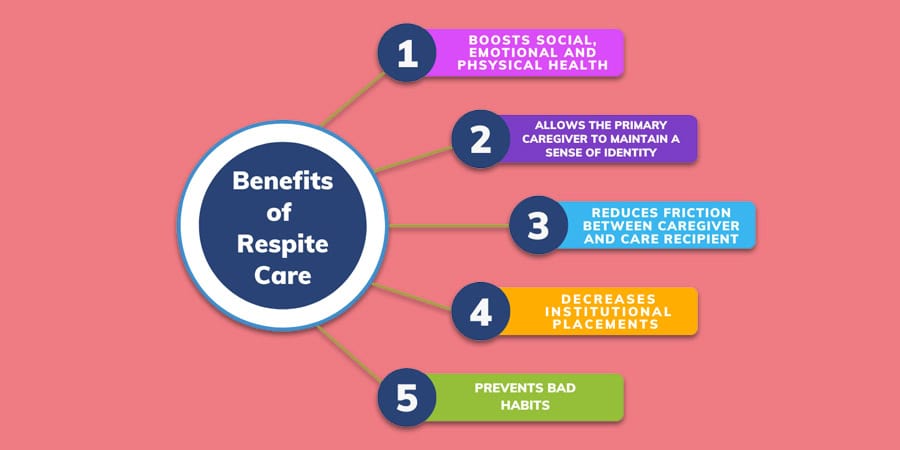
It is never an easy decision to leave a family member or loved one in someone else’s care, even if it is only for an afternoon or one day, as opposed to overnight. It is an especially important choice when it is a child or an aged person as they are dependent due to their age, but may also require more complex support for their possible disabilities and health needs.
Most of the time, when we think of families that include someone who is elderly or has a disability, our attention turns to that particular person and the daily struggles they must face. That is where the benefits of respite care come in, allowing you to have help with your duties and provide a full realm of care for your loved one.
What Is Respite Care?

Respite care is short-term professional care designed to give the primary caregiver a break from caregiving activities. Devoted caregivers may initially be resistant to giving up their responsibilities, worrying that it may be a sign of weakness.
In fact, the benefits of respite care prove the exact opposite, i.e., caregivers who request assistance from time to time give themselves the ability to return to their duties after some time away with more energy.
The phrase short-term can have a wide range of meanings. Respite care is a regularly scheduled service meant to meet non-medical care needs and can be provided both inside and outside your loved one’s home. Its primary goal is to provide family support services, which can include a variety of activities meant to assist your loved ones with everyday tasks.
Benefits of Respite Care At All Stages Of Life

There are several benefits associated with respite care. According to a recent survey, there have been recent studies that show that caregivers were most satisfied with early intervention therapies when they used the time to do what they wanted to do or planned to do.
This study mentioned that caregivers who achieved a high consistency between personal and work time are more likely to lead to improved mental health, less burnout, and higher levels of satisfaction.
One of the main benefits that respite care provides is allowing caregivers to go to work. Many caregivers, especially family caregivers are still employed. Unfortunately, these caregivers are more subject to stress as they try to deal with both the demands of full-time employment and caring for a loved one.
Family caregivers report improved physical and emotional health and reduced stress when respite is made available for their loved ones. Respite care services can help restore home stability and allow family caregivers to return to their responsibilities feeling fresh and rejuvenated.
Unlike professionals trained to care for individuals with disabilities or long-term care needs, most people who care for their loved ones do so without any specific training. Many times they find the role, and the stress, of being a caregiver thrust upon them.
For autistic kids, respite care serves the best as the experts provide the best help to cope with all stress factors for your kid. An Autism support worker will help your kid get the best of nature.
No matter how well you care for your loved one, the effects of stress on your own health and well-being are important reasons to consider respite care. If you experience the physical, emotional, and psychological toll that providing care is having on you, you have options.
But to be most effective for both you and your loved one, respite services need to be regular and purposeful, and not a once-in-a-while or last-ditch option, to provide a safe, caring environment.
We often find that upon assessment, individuals often qualify for several different services which, when combined, often adds up to several hours a day of support.
Depending on your family’s needs, each particular situation will require different levels of care. While in-home care usually provides the most benefits of respite care, sometimes it is necessary to utilize an out-of-home option as well. These options have their own benefits, especially to an individual who is getting ready to transition into or out of caring for themselves.
The traditional autism therapy Australia practices can be integrated with Eco-therapeutic strategies to deliver more positive outcomes. Eco-therapeutic methods work well because children can self-regulate in natural settings.
For optimal Eco-therapy results, an autism support worker can mix them with animals like Chase and horse. If you are the parent or full-time caretaker of someone with autism, you may already know that respite care is very important.
And if you don’t know exactly how vital respite care is to the health of your family, reach out for support services for Autism in Australia. You can also get tips there for finding and funding respite care for someone with autism, as well as learn how to get over the guilt you may feel for needing it.
